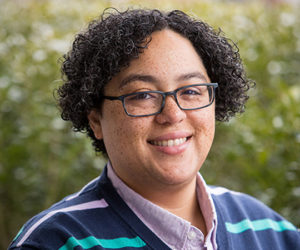With last week’s decisions, SCOTUS has further opened the door for the abuse of religious exemptions and set up a potential collision course with recent decisions that affirm LGBTQ equality and reproductive health, rights, and justice.
The last few weeks have seen a flurry of activity from our highest court. We saw decisions in June Medical Services L. L. C. v. Russo and Bostock v. Clayton County that confirmed broad access to abortion services and also made it illegal for employers to discriminate based on an individual’s sexual orientation and gender identity. These decisions both surprised and buoyed advocates across the country.
But in the weeks since, subsequent decisions have illustrated that the court is willing to recognize freedom of religion claims as a legitimate defense for discrimination: In Our Lady of Guadalupe School v. Morrissey-Berru, the court expanded which types of employees are included under the “ministerial exemption,” a principle which bars the government from telling a religious institution who it can choose as its faith leaders. By expanding this exemption to non-clergy members (in this case, teachers) SCOTUS has given religious employers carte blanche to avoid nondiscrimination policies meant to safeguard the rights of all protected classes.
As Justice Sotomayor noted in her dissent, “The inherent injustice in the court’s conclusion will be impossible to ignore for long, particularly in a pluralistic society like ours.” Despite historical precedence, key legal protections—especially those related to reproductive health care, abortion access, and employment nondiscrimination—now stand in direct opposition to employers’ newly expanded right to opt out of the rules meant to protect employees based on their religious beliefs or moral objections.
In the same vein, SCOTUS also released the ruling in Trump v. Pennsylvania, finding that the government can even further expand the legal right of most employers to use religious or moral beliefs as justification to refuse to provide contraceptive coverage through the Affordable Care Act. This is particularly vexing since ACA legislation provided specific accommodations for religious employers that allowed them to opt out of covering contraceptives without shifting the harm to employees. The new ruling, on the other hand, suggests employees could now bear the entire financial burden of an employer’s choice.
“[This new ruling] means that women, LGBTQ people, people of color, low-wage workers and others already facing inequities in health care can be denied birth control access because of their company’s or university’s religious or moral objections,” says Rachel Laser, the President and CEO of Americans United for the Separation of Church and State. “It also means that Congress’ intent to provide birth control coverage as essential preventive health care has been undermined.”
With Fulton v. City of Philadelphia (the Catholic Charities case concerning foster and adoption agencies) on the docket for next year, and Justice Gorsuch indicating RFRA could be a “super statute,” advocates fear decades of progress will be undone by the expansion of religiously based refusals. Legal experts also agree that religion and religious exemptions will be the area where existing laws will be reinterpreted and hard-won equality norms will be weakened, if not lost altogether, with each new ruling. We know this will inflict disparate harm on people of color, transgender non-conforming people, people in rural areas, and those with fewer economic opportunities. Those who have the least choice in where they receive healthcare or where they work will suffer because the court has chosen to impose on them the beliefs of others.
Advocates across these movements have never harbored any illusions that abortion rights or LGBTQ equality were secured in perpetuity, and these decisions show us that many avenues remain for those who would use religious exemptions to deny others their civil liberties. That’s why it is essential that RFDC and its allies continue to put greater resources into the hands of those working to advance legal protections and build a broad base of public support that can shift the narrative, framing religious freedom as freedom for everyone—no exemptions, no exceptions. As we work to achieve a more inclusive, inspiring, and compassionate notion of religious freedom, we will continue to leverage our grantees’ dynamic, cross-issue partnerships to weather this and many other storms that are certain to come our way.
 With determination,
With determination,
Leah Pryor-Lease
Director
Rights, Faith & Democracy Collaborative